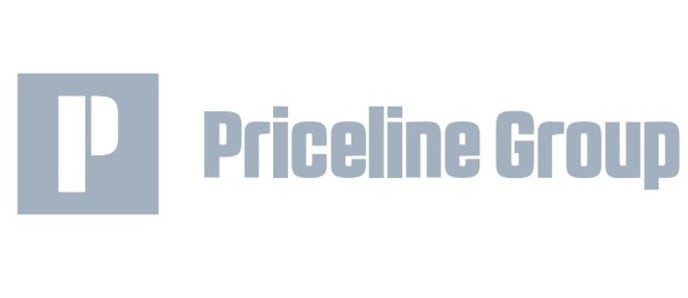The Priceline Group is a collection of online travel agencies (OTAs) and metasearch engines, including such brands as the eponymous Priceline.com, Kayak, Open Table and the global OTA Booking.com. The Group has its beginnings in the promulgator of the Name Your Own Price bidding model, Priceline.com, founded by Jay Walker in 1997. The company strayed from travel in its formative years, but by 2002, newly tabbed CEO Jeff Boyd had refocused its approach.
H/T Dataroma
Priceline’s acquisitions over the subsequent three years are the stuff of stock geek legend. The few hundred million dollars spent to acquire Active Hotels and Booking.com has bloomed into a leviathan of global OTAs responsible for the vast majority of the Group’s current $90+ billion market value and fifteen years of compounded +40% stock returns. Priceline’s 2017 pretax earnings will likely approach 7x those of the next largest OTA, Expedia.
While we have happily owned Expedia both directly and indirectly (by way of Liberty Expedia Holdings) over time, we bought Priceline for the first time in December. One might say we are a bit late to this party, but we think we can still have some fun.
For openers, the financial characteristics of the business are fantastic. The balance sheet is pristine, boasting over $18 billion in cash and investments against less than $10 billion in debt. Tangible net assets, those assets and liabilities that result from the operation of the business itself, net to a negative balance; in effect, a free loan from the Group’s business partners. Thus, growth in revenues, income and cash flow requires no (at times negative, at times negligible) investment. Nice work, if one can get it.
And oh, how Priceline has grown. Management worried aloud about their ability to keep chugging along back in 2012, yet gross profits have compounded at roughly a 25% clip in the five years since. We have no expectation of a repeat performance; however, we believe we paid a bit above 20x free cash flow for our stock. Because growth requires negligible reinvestment, we view those earnings as a continuing 5% yield in our pocket right out of the gate. A mere 5% growth on top of that yield creates an investment that begins to look quite appealing in a 2%-4% 10-year Treasury yield world. We believe growth will far exceed 5% over the long haul.
In the near term, Priceline has some grappling to do. Stepping back a mile, this is a business that introduces consumers to owners of lodging capacity. Hotel brands like those in the Marriott and Hilton stables have ably filled this role for decades and will undoubtedly continue to do so. With hotel occupancies and room rates in fine form, the hotel brands and the owners they represent need less help hawking rooms. This manifests in pressure on the OTAs’ economics but will not always be the case.
Brand affiliation brings both benefits and costs to an owner of a hotel. Some historical benefits of brand affiliation have not been replicated by OTAs and other Internet-based intermediaries. Other benefits have been replicated, such as predictability of consumer experience, transacting ease and discoverability. Holding up the pre- and post-Internet lodging worlds for comparison, the stark difference is in the improved ability of the small to compete with the large. The couch in a Chicago apartment booked via Airbnb is an extreme example. The shift of vacation rental and alternative lodging capacity to the Internet introduces incremental bookable supply to the typical consumer. The amount and quality of that supply, and the ease of its booking, will likely only continue to grow apace. This trend should increase the fragmentation of lodging capacity.
Booking.com made its bones in the fragmented lodging markets of Europe. The Group’s 27 million bookable rooms are spread across 1.5 million properties, putting the average property size at under 20 rooms. These are not large branded hotels. These are small independents with greater need of assistance than a branded hotel. Over the last two years, the incremental property added has been smaller still, averaging less than 10 rooms in size. And while already about one-third of its offered inventory, Priceline is accelerating its push into the longer tail of small lodging properties. Burrowing deeper into this more difficult-to-serve segment will come at a cost, (one of the primary reasons we could buy Priceline stock at a reasonable valuation), but doing the hard thing often creates moats in one’s wake that those behind find very difficult to cross.
Unlike with Expedia, all this new inventory has been instantly bookable online from the beginning. It has been exposed to consumer demand in a monolithic global brand and was developed organically without the distraction of acquisition integration or business model change. Unlike Airbnb, Priceline can leverage its industry-leading marketing and development spend over the global whole of both traditional and alternative lodging capacity. We believe this brand and resource scale combined with this structural simplicity allow for greater margin, greater capacity for investment and fewer impediments to growth.
As of December 31, 2017, each of the following portfolio companies constituted a portion of the net assets of Value Fund, Partners III Opportunity Fund, Hickory Fund, and Balanced Fund as follows: Liberty Expedia Holdings, Inc.-Series A: 0%, 0.7%, 1.9%, and 0%. The Priceline Group Inc.: 1.0%, 0%, 0%, and 1.1%. Portfolio composition is subject to change at any time. Current and future portfolio holdings are subject to risk.
Investors should consider carefully the investment objectives, risks, and charges and expenses of the Funds before investing. The Funds’ Prospectus contains this and other information about the Funds and should be read carefully before investing. The Prospectus is available from Weitz Investment Management, Inc. Weitz Securities, Inc. is the distributor of the Weitz Funds.













